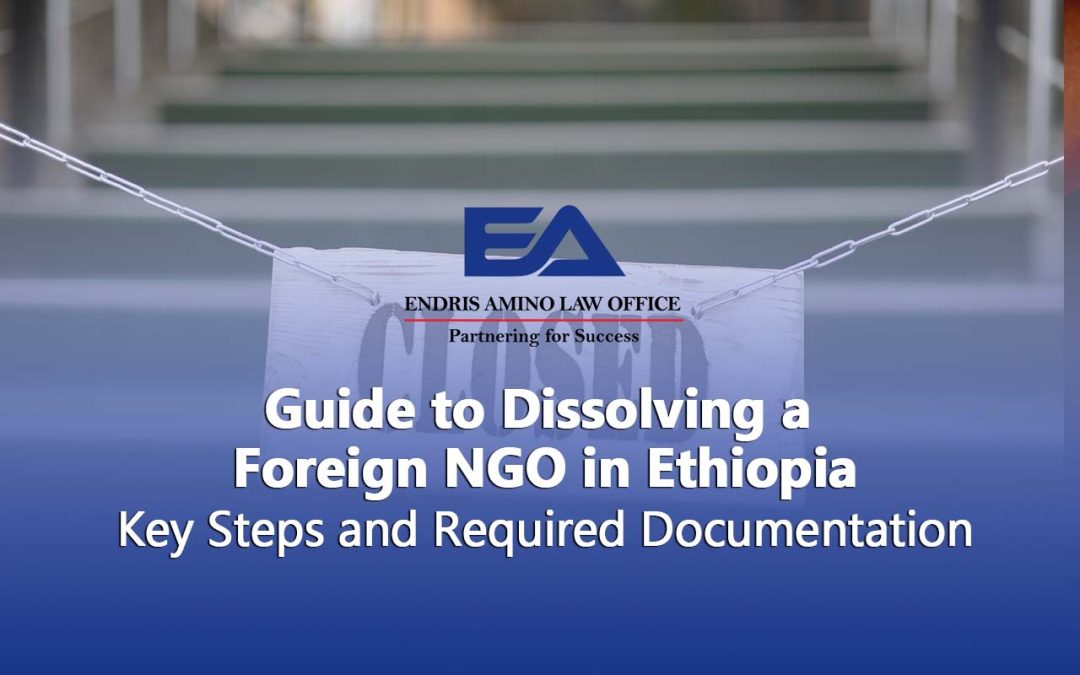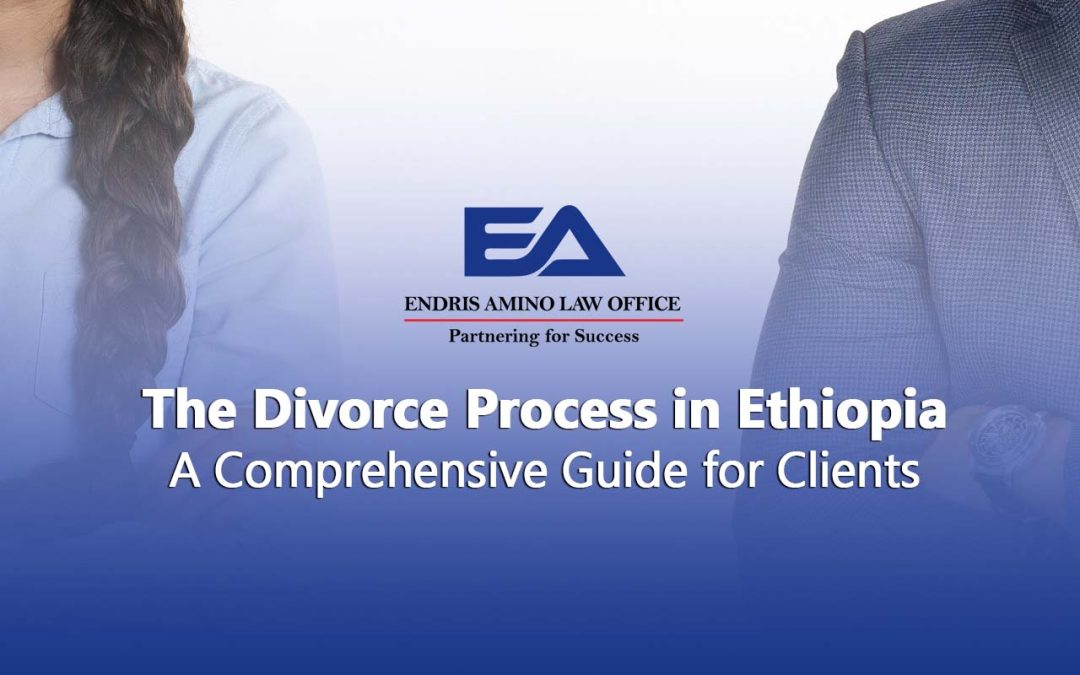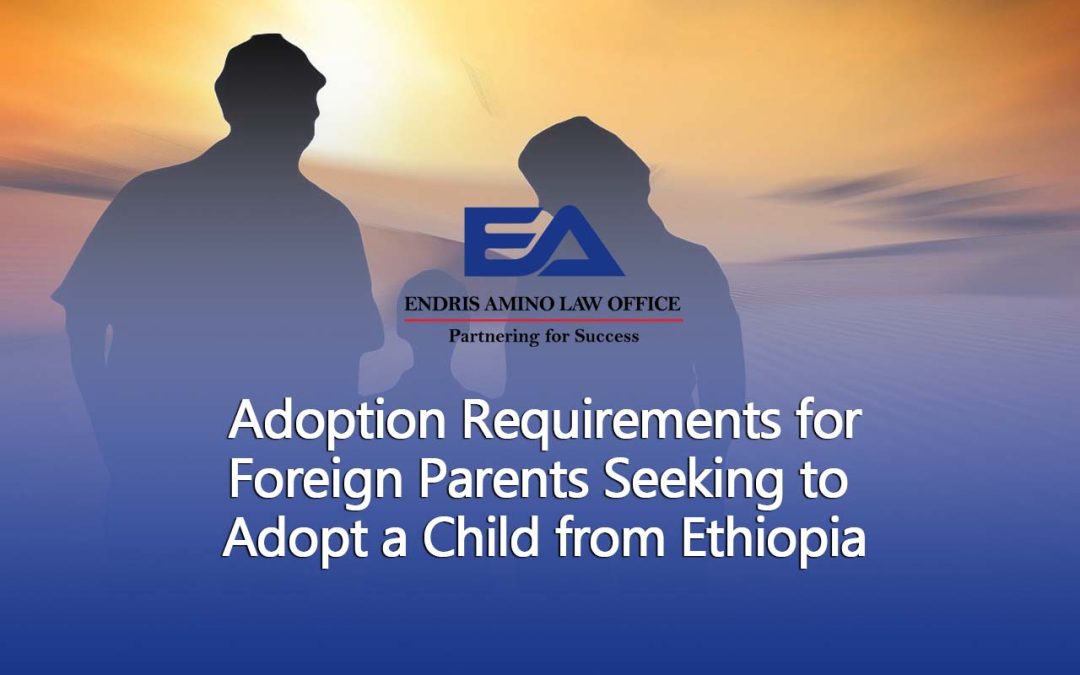Employment Termination in Ethiopia: Grounds and Effects Under Labour Proclamation No. 1156/2019
Employment termination is an essential part of labor law, defining how and when the employment relationship can end. The Labour Proclamation No. 1156/2019 in Ethiopia outlines the conditions under which an employment contract can be terminated and provides detailed provisions for lawful termination. This blog will explore the classification of employment termination, the grounds for termination, and the effects of termination under Ethiopian law.
Classification of Employment Termination
Employment termination under Labour Proclamation No. 1156/2019 is classified into two broad categories: employer-initiated and employee-initiated termination. Both types of termination can occur with or without notice, depending on the situation.
1. Termination by the Employer:
Employer-initiated termination is categorized into two types based on notice requirements:
- Termination with Notice: The employer may terminate an employee’s contract by providing the required notice period. This applies when the termination is due to grounds such as poor performance, misconduct, or economic reasons. The employer is required to follow the procedural requirements and provide written notice as stipulated in the law.
- Termination without Notice: In cases of serious misconduct, such as theft, fraud, or violence, the employer has the right to terminate the employee without prior notice. The employer must ensure that the grounds for immediate termination are substantiated by clear evidence.
2. Termination by the Employee:
Employees can also terminate their contracts, either with or without notice, based on the circumstances.
- Termination with Notice: Employees can terminate their contract by providing the required notice period, as agreed in the employment contract or as specified by the law. The employee may do this for reasons such as non-payment of wages, unsafe working conditions, or personal reasons.
- Termination without Notice: Employees can also terminate their contract without notice in cases of severe harassment, breach of contract by the employer, or unsafe working conditions that threaten their health or safety.
Grounds for Employment Termination
Under Labour Proclamation No. 1156/2019, there are specific grounds for both employer-initiated and employee-initiated termination:
1. Grounds for Employer-Initiated Termination
Employers can terminate an employee’s contract for the following reasons:
- Misconduct or Breach of Contract: When an employee violates the terms of their contract, engages in misconduct, or fails to perform their job duties, the employer may terminate the contract.
- Poor Performance: If an employee consistently fails to meet performance expectations, the employer may terminate their employment after following the necessary procedures.
- Economic or Organizational Restructuring: Employers may need to downsize, restructure, or eliminate positions due to financial difficulties or organizational changes, resulting in termination.
- Serious Injury or Illness: If an employee becomes unable to perform their duties due to a serious injury or illness, and medical documentation supports the inability to continue working, the employer may terminate the contract.
- Unfair Treatment or Harassment: If the employee is subjected to harassment, discrimination, or intolerable working conditions, they may either choose to resign or the employer may proceed with termination.
2. Grounds for Employee-Initiated Termination
Employees may choose to terminate their employment for the following reasons:
- Non-Payment of Wages: If the employer fails to pay wages on time or does not pay the agreed salary, the employee has the right to resign.
- Unsafe Working Conditions: If the workplace is unsafe or hazardous to health, the employee can terminate their employment.
- Discrimination or Unfair Treatment: Employees can resign if they are subjected to unfair treatment or discrimination based on factors such as gender, ethnicity, religion, etc.
- Failure to Provide Agreed Benefits: If the employer does not provide agreed-upon benefits like health insurance, paid leave, or specific work conditions, the employee may decide to terminate the contract.
- Personal Health or Family Reasons: Employees may also resign for personal reasons, such as health issues or family obligations.
Effects of Employment Termination
The effects of employment termination depend on the grounds for termination and whether it was initiated by the employer or the employee. The primary effects include:
- Severance Pay and Compensation:
- Employer-Initiated Termination: If the employer terminates the employee’s contract and the employee has worked for at least one year, they are generally entitled to severance pay. If the termination is due to the employee’s misconduct, severance pay is not provided.
- Employee-Initiated Termination: Employees who voluntarily resign after less than five years of service are not entitled to severance pay unless otherwise specified in the employment contract.
- Accrued Benefits:
- Employees are entitled to any accrued benefits such as unused annual leave, sick leave, or other entitlements specified in the employment contract. These must be paid out upon termination.
- Employment Record:
- Employers are required to provide a termination letter that clearly states the reason for termination and the effective date. Employees may also request a reference letter for future employment opportunities.
- Legal Recourse:
- Employees who believe they were wrongfully terminated may seek legal recourse in court. If the termination is found to be unlawful, the employee may be entitled to reinstatement or compensation for lost wages and benefits.
Why Understanding Employment Termination is Important
A clear understanding of employment termination provisions is essential for both employers and employees to ensure fair and lawful handling of contract terminations. Familiarity with the legal framework under Labour Proclamation No. 1156/2019 helps both parties protect their rights and avoid unnecessary disputes.
For legal assistance on employment termination, employee rights, or Ethiopian labor law, contact us. Our legal team can help navigate complex employment-related matters and provide tailored guidance.
Key Takeaways on Employment Termination in Ethiopia
- Employer-Initiated Termination: Grounds include misconduct, poor performance, organizational changes, and illness.
- Employee-Initiated Termination: Grounds include non-payment of wages, unsafe conditions, discrimination, and failure to provide benefits.
- Effects of Termination: Severance pay, accrued benefits, termination letter, and legal recourse for wrongful termination.
Note: This blog provides general information on Ethiopian employment law and should not be considered a substitute for our professional advice, which is tailored to specific circumstances.





